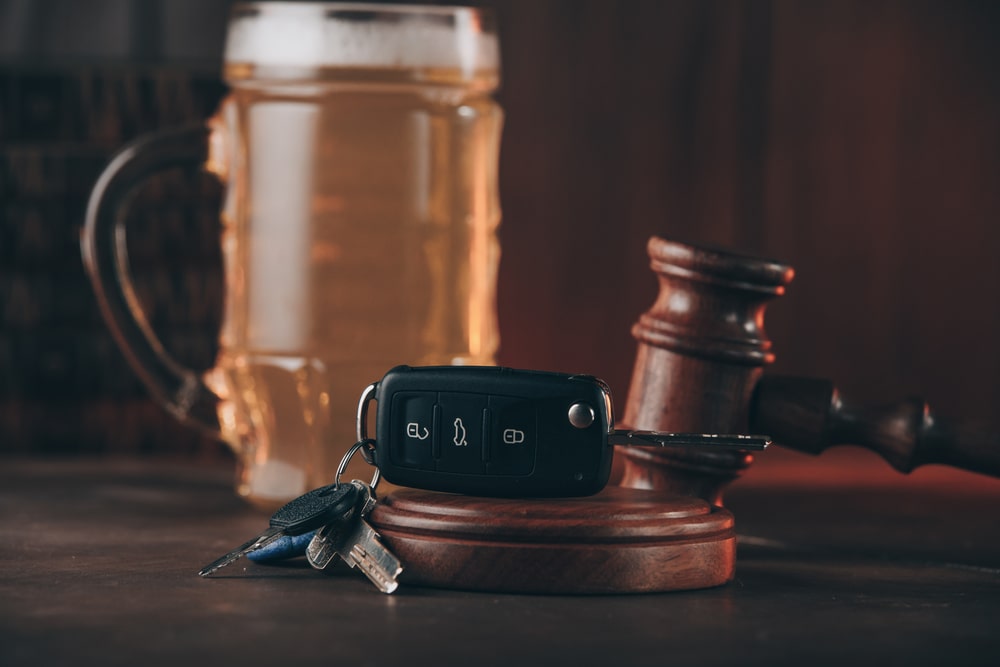What is an Impaired Driving Care & Control Offence in Ontario?
Many people who are charged with impaired driving in Ontario are not drunk, intoxicated, “high” or even over the legal limit?
They are simply “impaired” because, in the opinion of law enforcement, their ability to operate a vehicle was affected by alcohol or drugs.
Furthermore, did you know that you do not even need to be driving or operating your vehicle to be charged with a drink-driving offence in Ontario?
In most cases, arrests for impaired driving in Ontario occur at traffic stops or when pulled over on suspicion of committing another traffic offence. But drivers can be charged with impaired driving even if they had no intention to drive.
Impaired driving “care and control” in Ontario
Impaired driving in Ontario is defined as the following:
“Having the care or control of a motor vehicle, while the driver’s ability is impaired due to the consumption of an alcohol or drug”
The phrase “care and control” is extremely important in this definition. It does not say “driving a motor vehicle” but “having the care or control of a motor vehicle”.
So, if you are sitting in the driver’s seat of a stationary vehicle, asleep behind the wheel, waiting for a friend to pick you up, or even standing near a vehicle under your care after it broke down, the police may question you on suspicion of impaired driving if they believe that you are impaired from the consumption of alcohol or drugs.
If you are tempted to “sleep off” the effects of the alcohol in your vehicle in the hope that you can wake up and drive home, think again.
If the law enforcement officer believes that you had the care or control of the vehicle and that your ability to drive was impaired due to the consumption of alcohol or a drug, you can be arrested and charged for impaired driving.
“Care or control” is a vague term that provides an intentionally low threshold for impaired driving cases, potentially making it a criminal offence to have consumed alcohol and be inside your car even if you have no intention of driving it. These types of offences have opened up a whole new way of thinking about how drivers should interact with a car while impaired or over the legal limit.
The key consideration by judges in such cases where the accused was not driving the vehicle is: does the interaction of a person under the influence with the motor vehicle pose a realistic risk of danger to people or property?
If the judge believes that there was a risk of an intoxicated person losing their judgment and operating the vehicle that they had care or control of, it could be enough to convict you.
Procedures police officers must follow in Ontario Impaired Driving Cases
There is a strict protocol for law enforcement to follow when collecting evidence against the accused in any impaired driving care or control arrest. Otherwise, evidence may be declared inadmissible and the case can be dismissed or the charges “stayed”.
For instance, for the results of the breathalyzer test to be used in court, the test must usually be administered within two hours of the time of the offence by a qualified breathalyzer technician. The results must be properly reported and the documents properly served on the accused.
At a trial, either the breathalyzer technician or the arresting officer must give evidence as part of the prosecution’s attempt to prove the charges. This sometimes creates opportunities for a criminal defence lawyer to demonstrate that the police officer who wrote the report does not recall exactly what happened.
Your legal rights and the actions of police officers in impaired driving (DUI) cases
The Canadian Charter of Rights and Freedoms states that if you are charged with a criminal offence, you have the right to speak to a lawyer of your choice in private without anyone else present (including police officers).
The police must take reasonable steps to put you in touch with a lawyer as soon as possible. Otherwise, the case could be dismissed or the charges stayed.
Any Canadian citizen charged with an offence in Canada also has a right to have the case heard by a judge within a reasonable timeframe—usually 18 months. If this right is violated, the case may be dismissed.
The police must also ensure when arresting a person for impaired driving that certain procedures are followed, such as:
- Informing you that you are under arrest
- Reading your rights to counsel
- Reading a breathalyzer demand
- Ensuring you understand what you have been told
- Ensuring that the breathalyzer test is taken as soon as possible
- Ensuring that all evidence is collected properly
How to defend impaired driving care or control cases in Ontario

To successfully defend an impaired driving care or control charge, you must either prove that the police actions did not follow protocol, show that you were not impaired or rebut the presumption that you presented a danger to people or property by interacting with your vehicle while in an impaired state.
For instance, if you can show (by the balance of probabilities) that at the time you occupied the driver’s seat you did not intend to put the vehicle in motion, this can be a valid defence.
Other impaired driving defences that we have already touched on include:
- Abuse of Charter rights
- Law enforcement failing to follow the correct procedure
- The breathalyzer test was not accurate due to faulty or poorly maintained equipment
- Incorrect preparation of documentation
Penalties for impaired driving “care and control” convictions in Ontario
Impaired driving care or control convictions carry the same DUI penalties as convictions for impaired driving. Namely:
- An immediate 90-day licence suspension
- A fine of $1,000-$2,000
- Jail for serious or repeat offences
- An additional one-year license suspension
- Drivers’ licence reinstatement fee of $300
- Mandatory Ignition Interlock Device (IID) installed in your vehicle
Longer-term, you will have a lifelong criminal record, which can create employment difficulties as well as immigration status problems, travel restrictions, and increased insurance premiums (over $10,000 per year for five years).
If you or a loved one has been arrested and charged with impaired driving in Ottawa, contact an experienced criminal defence lawyer at Affordable Defence for a free initial consultation.


